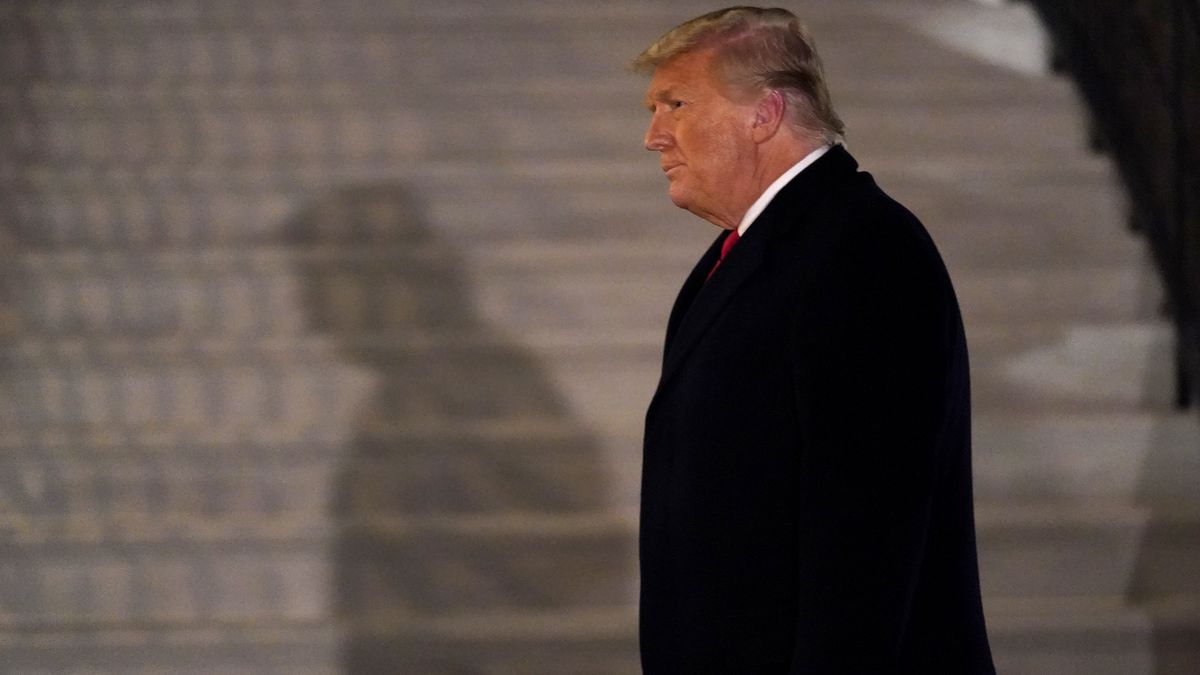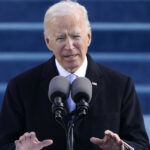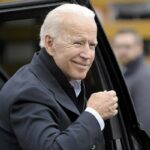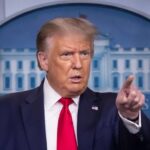Donald Trump has set in motion a PR crisis that may haunt the American brand for the next few years. Although the White House has always been the engine room of unpopular policies that polarized the world, and inspired rebellions, both misguided and justifiable, towards the United States, the current occupant of America’s seat of power invited the world to look beyond the country’s surface. The outcome is this demystified superpower held to ransom by a seemingly unhinged former TV host.
The United States has been at war with the world, and maligned, for its endless interventions in other countries, and blamed for a cascade of crises, especially in the developing countries. Either for their misadventures in Vietnam War or funding of local militia in Afghanistan to fight the Soviets during the Cold War, and either for the aftermath of Gaddafi’s ouster or the lingering trade war with fast-rising China, American policymakers have defined and directed international politics for decades.
- Division created by Trump would go away in America
- What impeachment means for Trump, Biden and America
Sometimes, though, the hatred of America is rooted in wild conspiracy theories dispensed by countries against its leadership of the liberal international order. Other times, the outrage is understandable. Here, the destabilization of Iraq comes to mind. Ahead of the invasion of Iraq, the US Secretary of State, Colin Powell, sat before the United Nations Security Council, and said, “My colleagues, every statement I make today is backed up by sources, solid sources. These are not assertions. What we’re giving you are facts and conclusions based on solid intelligence.” This confident declaration turned out to be a false claim, and deliberate misinformation to whet the appetite of America’s military-industrial complex. But that was only realised after about half a million people had lost their lives, and about 5000 Colin’s fellow Americans.
In marketing and imposing its ideals as the highest of the human civilization, the United States has not entirely succeeded, but it’s never left any country doubting its capabilities, whether military or economic. At its disposal, also, is an expansive media to propagate the superiority of its ideas and cultures. This is probably why the unfiltered and unedited videos emerging from the United States since Trump made it to the Oval Office, and especially around the 2020 elections, seem to betray the expectations of America sold by Hollywood and spin doctors.
But, for all its boots on foreign soils and the spies it sent out, America offered, at least in official public standings, to promote democracy and advertise its democratic institutions as the model for all the states at a crossroads. That these centuries-old political institutions, which had been cited as the best of the civilization, couldn’t prevent a Donald Trump, is the reason America has become a recurring subject of cruel jokes in the past few years.
America’s dramatic descent from a notorious and dreaded geopolitical opponent to a place of undermined institutions, and being overrun by a pandemic that lesser-developed countries have managed more competently, is an image crisis that may haunt their attempt to project soft power in the years after Trump. The “America First” strategy that guided its external relations since 2016, and the consequent withdrawal from the global institutions and multilateral agreements it once dominated, have created a vacuum a competing country must fill, and China isn’t lagging in this pursuit of power.
But what’s happening in America, contrary to the commentaries of shocked observers who’ve described the electoral disputes and rioting as unAmerican, isn’t alien. Trump and all that came with him are a perfectly American tragedy. If you’ve lived in the United States, and experienced life in its countrysides or anywhere outside the liberal strongholds, the unedited footage of America’s political dysfunction won’t be a surprise. America is a largely conservative country with liberal media outlets, and Trump, for appealing mostly to the white majority, couldn’t fit into that left-wing manifesto. He’s been an embarrassment to the liberal establishment since he announced his decision to run for President.
Describing Trump’s attempts to discredit the 2020 elections and the ensuing riots he incited at Capitol Hill as a Third World nightmare, is an inexcusably racist projection. The American society, if you must excuse my own enabling of this racism, is a third world country in a fancy suit. The democratic ideals and justice Washington has been struggling to dispense and enforce abroad is the very institution under threats and there’s no joy in celebrating that America is just like us.
Of course, Americans are like us. They are human and vulnerable. But it’s not that simple. If Donald Trump were a President in a country with weak institutions, whether in Africa or elsewhere, he would’ve been one of the worst dictators the world has ever seen. Most of the dictators we’ve witnessed, unlike Trump, pretended to be sane, diplomatic, benign, and they would’ve been instantly tamed in a functional state. Despite our mockery of America, what’s keeping it in check at this moment isn’t the political education of the voting citizens. The American security arrangement is the reason these far-right extremists, to whose sentiments Trump appeals, haven’t exploded. At least that’s something.
And it’s all Trump’s doing. When the storm of the siege of Capitol began to fizzle out, with the American authorities after the protesters, one of the notable of the pro-Trump protesters gave us perhaps the clearest idea of why they came to Washington DC. Jacob Chansley, according to his lawyer, “felt like he was answering the call of our President.” That call has, unfortunately, led to deaths of about five citizens, and has reasserted the right-wing extremism that’s been tapping on the very skull of America since the election of Donald Trump.
The most ridiculous positions since the “unmasking” of America began have been the gloating testimonies to America’s imperfection. But the fact that Trump drew fierce and sustained opposition, lost both popular and electoral college votes, and got impeached twice, should count as an inspiration, especially for the people held hostage by old men who run their countries from hospital beds overseas.
At the time of writing this, Uganda is at the mercy of a ruthless dictator who’s neutralised all the obstacles to his sixth term in office after 35 years in power. While private social media companies were able to shut down the President in Trump’s America, President Yoweri Museveni’s Uganda has had the internet shut down and got the parliament to remove presidential age limit to allow him to run for election again at 76. This distinction matters, especially when you realised that Paul Biya has been President in Cameroon since 1982, Teodoro Mbasogo in Equatorial Guinea since 1979, Idriss Déby in Chad since 1990, Denis Sassou Nguesso in Congo since 1997, and even Paul Kagame, once a darling of the Western media, has refused to leave and has overpowered all state institutions since coming to power over two decades ago.
There’s nothing wrong with staying long in power as long as you aren’t breaking or cracking down on state institutions to do so. But once you begin to manipulate established electoral processes and rig the system to your advantage just to impose yourself on a people who no longer need your service, it’s no longer a democracy. That’s Museveni’s handbook, and he’s what Trump would’ve become if he had happened on Uganda-type institutions. So, our concern shouldn’t be that America is just as dysfunctional as, say, Uganda. Or Nigeria. But the reality that, unlike ours, there’s no elite pact there to keep the oppressor at the helm.

 Join Daily Trust WhatsApp Community For Quick Access To News and Happenings Around You.
Join Daily Trust WhatsApp Community For Quick Access To News and Happenings Around You.


